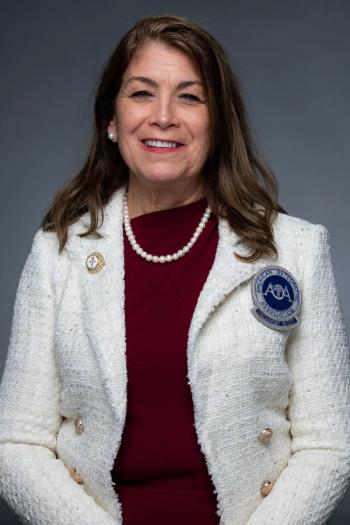
How physicians can be transgender inclusive around sexual health
While sexual health is often an uncomfortable issue for physicians to address with patients, it is often overlooked entirely in transgender individuals.
While sexual health is often an uncomfortable issue for physicians to address with patients, it is often overlooked entirely in transgender individuals due to physician’s lack of education or personal discomfort, according to Johanna Olson-Kennedy, MD, medical director at the Center for Transgender Health at the Children’s Hospital Los Angeles and associate professor of clinical pediatrics at the University of Southern California's Keck School of Medicine in Los Angeles.
Transgender individuals are those who maintain a gender identity that is different from the gender they were assigned at birth.
Olson-Kennedy recommends that physicians undergo training to improve their understanding and sensitivity to be more inclusive of transgender individuals.
One such training is the healthcare equality index training offered by the Human Rights Campaign. Mark Leondires, MD, a board certified reproductive endocrinologist, founder of Gay Parents To Be, and director of Reproductive Medicine Associates of Connecticut, in Norwalk, had his entire practice staff take this training to make his practice LGBTQ friendly.
“Making your practice welcoming to trans patients involves a practice wide re-education that not everybody fits into the standard binary male/female box,” Leondires says.
He says this begins with the front desk staff or first point of contact with patients. “If [front desk staff] don’t give [trans patients] the opportunity to be their true selves they’ll automatically be on the defensive or never come in,” Leondires says.
Either as a standard practice on all intakes, or when there is doubt about a person’s gender, it’s important to ask what pronouns they wish to use-some people prefer “they/them” for example-and what name they wish to go by.
“If someone’s chart shows up as Susan and yet they say they want to be called Steve, there needs to be a way that the chart reflects that so you don’t blow it,” Leondires stresses.
Inclusivity also extends to what Olson-Kennedy calls “visible indicators of safe spaces” which include signs in waiting rooms, spaces on intake forms that allow write-ins for gender, and chosen name versus legal name.
When it comes to taking a sexual history, Olson-Kennedy says it’s very important that physicians avoid making any assumptions about a transgender person’s sexual behaviors or choice of sexual partners.
“There is a common [erroneous] assumption that transmen have sexual relationships with cisgender women,” Olson-Kennedy says. “For transfeminine individuals there is a similar assumption that they are in sexual relationships with cisgender men, which can lead to unnecessary and inappropriate inquiry about HIV risk.”
Instead, she says, physicians should assess for sexual risk ask and about specific potentially risk-provoking behaviors.
For example, Olson-Kennedy says, professionals addressing a transgender patient such questions as, “Are you having sex with anyone with a penis?” Or “Are you participating in sexual behavior that could potentially result in a pregnancy?” This can help determine recommendations for contraception and STI risks.
She says it is important to inquire and offer PreP [HIV prophylaxis treatment] “for transmasculine patients who have receptive anal or vagina sex with partners with penises.”
She also recommends asking transgender patients what they are comfortable calling their sexual organs, genitals and chest.
Additionally, since transgender women, in particular, are at risk for violence from partners related to the disclosure of trans status, she says, “Conversations about safety and disclosure of trans status should be discussed.”
While Leondires says that physicians are going to make mistakes as they begin to practice transgender inclusivity, it’s important to acknowledge those moments and keep trying to build trust.
“These patients need healthcare,” he says. “In order to trust their doctor, their identity needs to be acknowledged.”
Newsletter
Stay informed and empowered with Medical Economics enewsletter, delivering expert insights, financial strategies, practice management tips and technology trends — tailored for today’s physicians.






